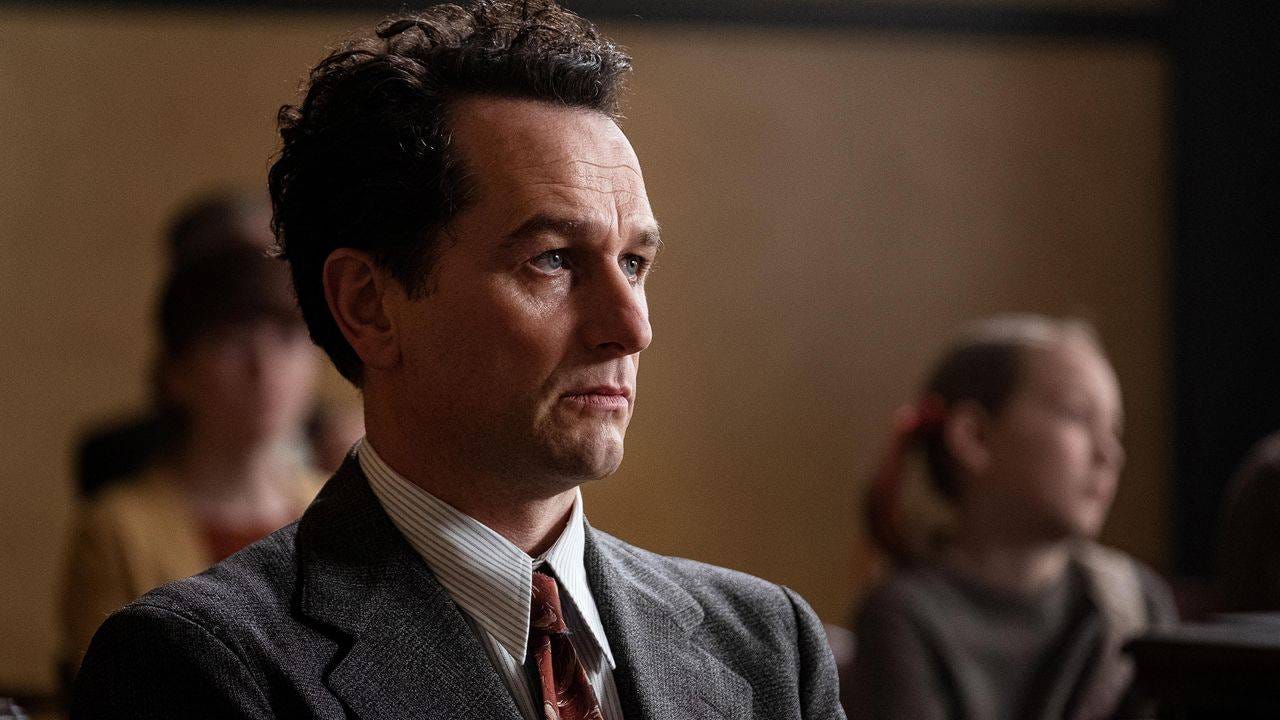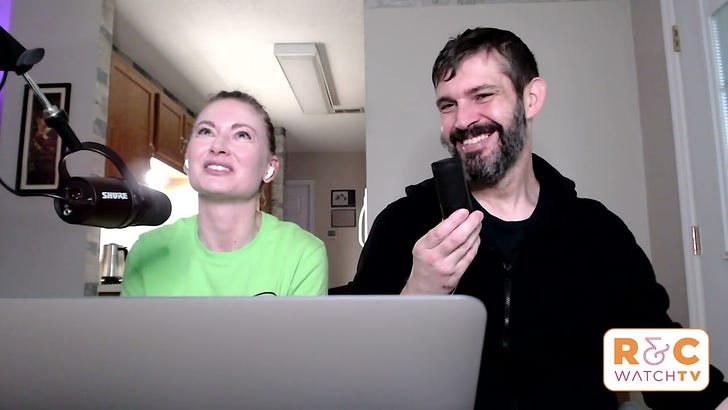Watch me read this:
Welcome to the 22nd TV Tuesday!
I watched the first episode of the Perry Mason reboot on HBO. First off, I never watched the original.
Second, how dare HBO so despicably and utterly de-hottify Matthew Rhys? The way he went from The Americans to angry unshaven alcoholic. Why not hire a less-hot actor? Or, and maybe my Millennial is showing here, but I can’t help but wonder why they can’t just She’s All That him and use unflattering glasses as a pretext for pretending he’s not extremely good looking. It’s a waste, is what I’m saying.
Dislikes:
I wondered why I like Ginny & Georgia better, though it’s a worse show by any objective measure. And I think the answer is twofold: I like women and humor. The more, the better.
Maybe the pacing is a conscious choice, but for my taste, I’d prefer Perry Mason’s scenes to convey their meaning in less time with tighter writing.
Also, Mason isn’t very likeable. No one is likeable, actually. Well, except for John Lithgow because… John Lithgow. The man could rip me stem to stern and I’d thank him for his time.
Likes:
Hear me out. It’s kind of giving The Wire. We’ve got a financially insecure alcoholic single dad situtationship having anti-hero. We’ve got organized crime. We’ve got corrupt, lazy, incompetent police. We’re in a large, dense, somewhat decrepit city. We’re in a tight-but-fraught relationship with our professional partner. We’re finding small moments of profound connection within horrifically dark circumstances.
Now, like all civil libertarian/sometimes progressive urbanist Millennial whites, I LOVE The Wire. But The Wire’s singularity owes significantly to how accurately it depicts urban policing and organized crime (but I repeat myself).
The Wire creator David Simon covered crime and policing in Baltimore for many years as a beat cop. Not only is it unusual for a beat reporter to create a TV show, but it’s unusual to find a beat reporter who’s not a glorified flack for local cops.
In showing cops and criminals more accurately than ever before or since, The Wire set itself far apart from any other television depiction of the criminal justice system.
Today, true crime complicates the simple picture presented by Law & Order, Blue Bloods, and their ilk.
(True crime as a genre is probably on-net bad as I suspect it helps stoke middle-income suburban white woman stranger danger paranoia. In reality, violence across the board is far lower than in the 90s. Plus, the true crime demo is, statistically, the least-likely cohort to experience stranger violence. Worse, I imagine true crime fuels support for carceral feminism. On the plus side, it’s really hard to tell a true crime story without revealing at least a few instances of absolutely galling police corruption, incompetence, laziness, misogyny, and racism.)
I don’t know that Perry Mason could ever reach The Wire levels of truth-telling, nuance, and character development.
But one thing Perry Mason has going for it that The Wire didn’t is that it’s set in 1932.
Other people have done this better, but if you’ll indulge your girl for a second (as if this whole newsletter is not one long indulgence).
The 1920s wrapped up The Gilded Age (an amazing show which I apparently haven’t written about??). So named, from what I read, by Mark Twain as an ironic nod to vast wealth inequality. The 2020s are also quite unequal, wealth-wise.
These were the waning years of the age of the Industrialists, in which men like Andrew Carnegie and Henry Ford incited awe in some and ire in others. Today men like Elon Musk and Bill Gates inspire much of the same.
After years of significant gains for female autonomy and sexual permissiveness, the 1920s saw hints of the beginnings of a violent populist reactionary backlash. We see the same thing today in anti-trans bills, anti-porn legislation, and violent opposition to drag shows.
By setting itself in 1932, Perry Mason has the opportunity, at least, to give US viewers a chance to consider which parts of history we may want to avoid repeating. I don’t super love the show just yet. But I’m interested enough in the story to give it more of a go. We’ll see what happens.
Sex and the State is a newsletter at the intersection of policy and people. Like it? Upgrade to a paid subscription, buy a guide, follow me on Twitter, support me on Patreon, or just share this post 🙏
~~~~~
This ⬇️ is an affiliate link! Sign up today to support me!
Join the reading revolution! Get key ideas from bestselling non-fiction books, distilled by experts into bitesize text and audio. Explore our vast library of over 5,500 titles and stay up-to-date with 40 new titles added each month.
















Share this post